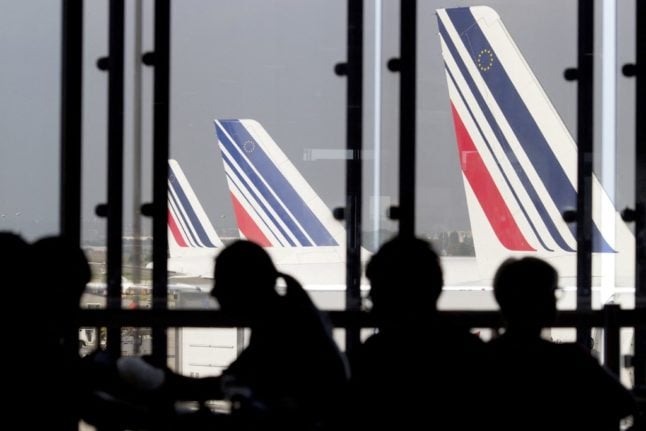Each time I’ve returned home to the United States over these past three years of living in Berlin, I get asked the question of “How is living in Germany different?”
But now I’ve found I’m much more acutely aware of how abnormal the US seems. Apparently I have reverse culture shock. Here are some things I’ve noticed.
How I’m no longer used to how friendly people can be
Perhaps it is largely because my first stop on my trips back home is typically my original home state of Florida, full of Southern hospitality. But landing back in the US is always a bit alarming due to everyone’s open friendliness.
While back home this time, I became trapped into telling my life story to the guy at the cell phone store, a taxi driver who simply was asked to snap my family’s picture, a random woman in a parking lot, and of course almost every American I sat near on my flights from and back to Berlin. But of course that’s not a complete list.
I’ll admit I do miss a bit of cheeriness in my everyday interactions in the stereotypically gruff German capital that I now call home. On the other hand, I have found that the longer I live here, the more I appreciate how Berliners are in fact quite kind, though in a more subtle way, and surprisingly willing to help those in need.
But I’ve also found that returning to the US can now feel exhausting at times, and I hate appearing standoffish when all I really want to do is not chit-chat until after my second cup of coffee.
How poor public transit is in comparison
 Photo: DPA
Photo: DPA
Of course, I haven’t visited every US or German city for a perfect comparison, but at least when looking at those that I have lived in, the US of A has nothing on Deutschland.
In Berlin, an underground train usually comes about every five to ten minutes, so if you just miss one, there’s no unbearable wait for the next. And it seems that you can get to almost every part of the nearly 900 square-kilometre (344 square miles) city in under an hour. In San Francisco – my other US home – it can take an hour just to get half way across the much smaller, 126 square-kilometre city (that's 49 square miles).
As such, I always have to plan much farther ahead for meeting friends than I ever would in Berlin. At least it’s slightly more socially acceptable to be late in the US.
How German has become part of even my English vocabulary
I suppose it’s only natural that the language I use on a daily basis would start to blend in with my mother tongue. But try uttering “Entschuldigung” to most monolingual Americans you bump into. Then take in that look of utter bewilderment you’ll receive back, because to them you will sound like you’ve just made up your own language.
How big the food portions are
I had long heard people complain about how Americans eat much larger portions than Europeans – and how this may explain our greater obesity problem – as well as criticisms of Europeans’ measly portions.
But I didn’t fully realize the difference until having lived in Germany and returning home.
On one return trip while out to dinner, I decided to order an appetizer as I wasn’t feeling very hungry. But it was so large that I had to take half of it home with me to eat for lunch the next day.
Getting asked for ID when drinking – and then feeling hurt when you don’t
Not having to worry about the drinking age in Germany and often being overly cautious not to lose my ID during a night out, I’ve gotten used to not carrying around a form of identification in Berlin.
So I always have to reset this mindset when I go home, and often do let it slip my mind that in the US, the rule of thumb is that bartenders should check your ID until you look over 30 or so. And thus I have been known to use my German health insurance card to get by (often letting bartenders believe it’s a funny kind of foreign driver’s license).
But this most recent trip was a bit of a reality check – I was no longer carded everywhere I went, a clear sign that I’m getting older.
It’s always annoying to have to dig out your ID card when you’re not accustomed to it – until you’re no longer asked to do so.
How different the beer culture is
 Photo: DPA
Photo: DPA
At one bar I visited while in Florida, I ordered a pale ale, only to be served my beverage in a disposable plastic cup, with no foam at the top. I wouldn’t say the cup was at all typical of American bars, but it did demonstrate the vast difference in beer cultures.
Germans can be quite particular about how their brews are served and have specific glasses for certain types. They’re also generally good about pouring beer with a beautiful, frothy head on top.
Not so in the US, and it can also be twice as expensive.
How much bolder people seem to be
Of course, all of these points are simply from my own experiences and are purely anecdotal. But it did seem that certain people were much more confident in asserting their controversial political opinions – and some pundits have attributed this to the success of president-elect Donald Trump.
Florida shopping areas I had visited several years ago that seemed to keep Confederate flag gear at the back of stores now have them out front on display. And after the Berlin terrorist attack, many strangers I had just met were quick to start condemning Chancellor Angela Merkel rather than reflect on the tragedy as soon as I mentioned I was from Berlin.
One man even surprised me when he said after just having met me, in a very public place, that “Muslims are the problem, we have to get rid of them all. They never integrate.” After I mentioned growing up in the US with Muslim friends, he dropped the subject.
Still, despite the brief moments of culture shock, the biggest thing I’ve taken away from living abroad is that our countries are actually quite similar after all. And it gets harder and harder to notice the differences.



 Please whitelist us to continue reading.
Please whitelist us to continue reading.